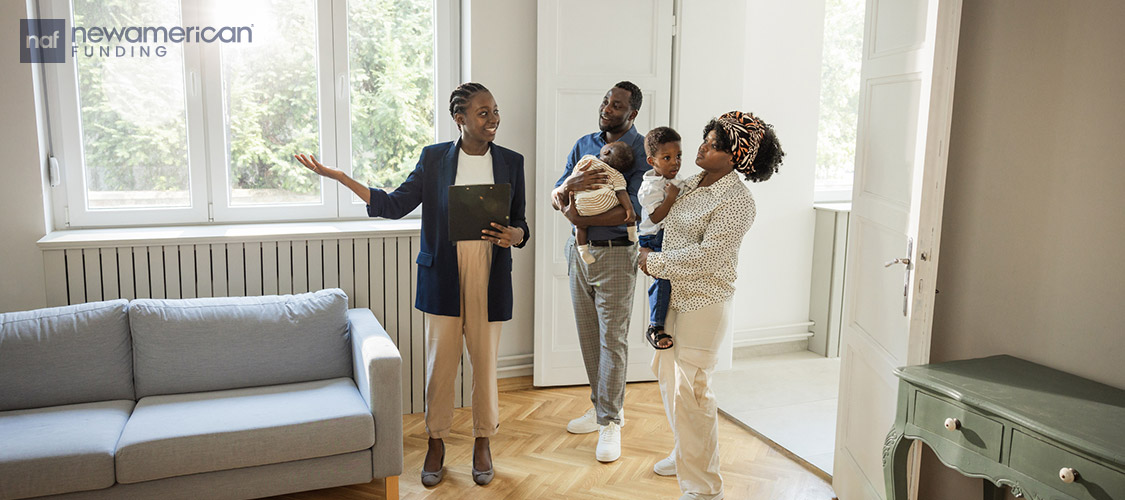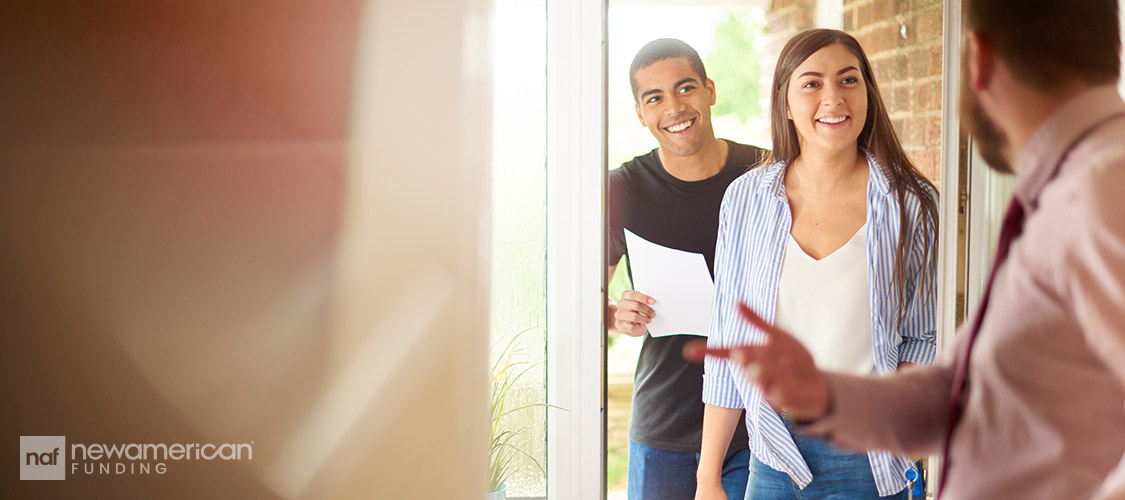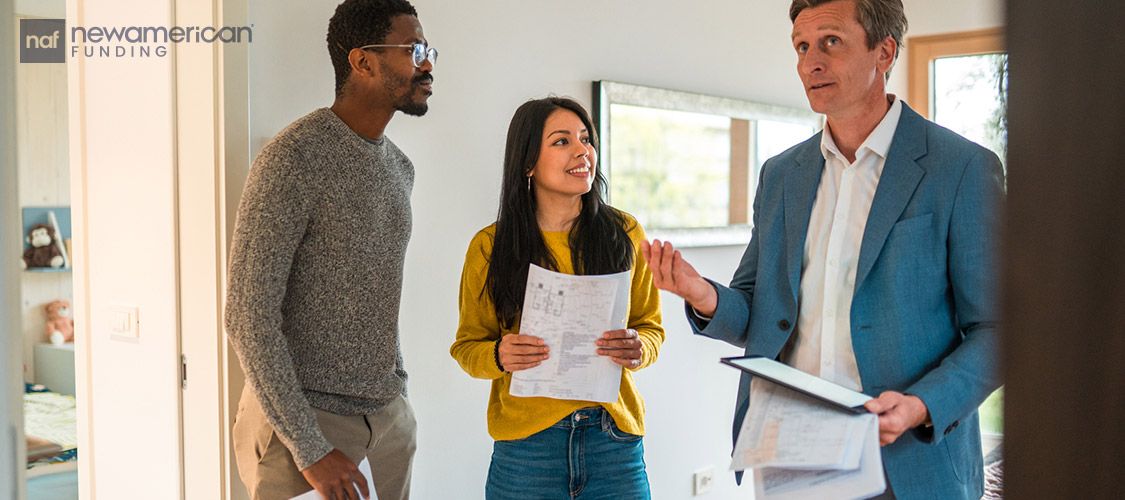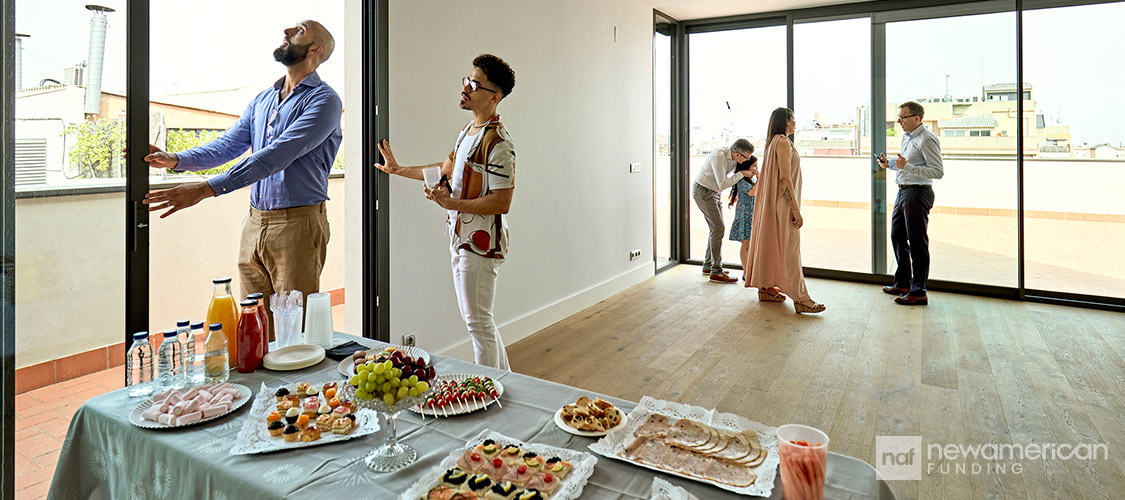Homebuyers
Ready, Set, Open House: How Homebuyers Can Navigate Open Houses Like Pros
August 15, 2024
You've been saving, dreaming, and scouring real estate listings online. Now it's time to take the plunge—and visit these homes in person. But stepping into the world of open houses can feel like a whirlwind, especially if you're a first-time homebuyer.
Attending an open house isn't just about walking through a beautiful home and admiring the architecture. Some strategies can help you get the most out of an open house before you rush to put in an offer on a property that may not be right for you.
You want to gather essential intel to help you decide if this home is where you hope to live for the next few years. Every detail matters from spotting potential red flags in the house to understanding the neighborhood. You also want to ensure you’re prepared for the monthly and annual costs of owning this property.
About half of all buyers used open houses as one of their top sources of information when purchasing a home, according to the National Association of Realtors (NAR) 2024 Home Buyers and Sellers Generational Trends report.
“Buying your first home should be fun,” said Rachel Stringer, a real estate agent at Raleigh Realty in Raleigh, North Carolina. “With the right prep and guidance, you've got this.”
Below are seven tips to help homebuyers walk away from an open house with more than just a brochure.
1. Hit the ground running
Visiting open houses is a good way to see what sorts of properties are on the market and do some exploration.
Attending multiple showings in several different neighborhoods can help you to clarify what you want in a home, and what you’re willing to compromise on, and give you a clearer sense of where you may want to live.
You may also want to bring along your real estate agent. They can be your secret weapon against getting swept up in the day's excitement and help you look out for any red flags.
2. Keep your checklist handy
Homes can look very different in person compared to the glamorous listing photos. It's easy to get distracted by professional staging and good lighting.
To stay on track, bring a checklist of your must-haves in a home. Does the home have enough bathrooms? Is the kitchen conducive to your culinary dreams? Is the yard large enough for the kids and dogs to run around in?
The smell of freshly baked cookies emanating from the kitchen is designed to pull at your heartstrings, but your checklist will keep you focused on your needs.
3. Check out the neighborhood
An open house isn't just about the house—it's also about the neighborhood. So have a look around.
Small details, like sidewalks, children playing outdoors in the neighborhood, and pleasant neighbors, can make a big difference in your day-to-day life.
"When you're done with the open house, walk or drive around the neighborhood to get a feel for it," said Atlanta-area real estate Tiffany Davis of Norman & Associates Real Estate Solutions.
4. Keep your feelings to yourself
At an open house, it's best not to reveal too much about your feelings or finances and put on a poker face instead.
"When touring an open house, don't show your hand if you love it by commenting out loud," said Davis. "Keep your thoughts to yourself and wait until you've cleared the home and front door before sharing what you may think."
You also shouldn't say anything about your budget or finances. Someone could overhear you and you don't want to give the seller's agent any extra leverage in negotiations.
5. Learn how much the home will cost you
An open house is your chance to learn more about what could soon be your new home.
You can ask the listing agent about things that might affect your decision. This can include how much the monthly utilities are each month or if the roof will need to be replaced soon.
"Don't forget about property taxes, insurance, any homeowner's association fees, regular maintenance, and more," said Stringer. "Make sure you factor in all the extras, so you don't get caught off guard."
You want to fully understand the financial commitment that comes with homeownership.
6. Look for signs of neglect or damage in the home
The home may look picture-perfect, but you should play detective. Look for signs of neglect or damage that could spell trouble down the road.
Are there cracks in the walls? Can you spot water stains on the ceiling? Are there any signs of pest problems? These are all red flags that could lead to costly repairs.
Your real estate agent should also be able to help you spot issues you might miss on your own.
"My biggest recommendation for first-timers is to get a professional home inspection," said Jim Gray, director of growth at Keller Williams Realty in the greater Rochester, N.Y. area. "An inspection can expose any underlying issues with the property before you're in too deep. It could save you tens of thousands in surprise repair costs down the road."
7. Avoid the fear of missing out (FOMO) trap
Open houses can get crowded and you may feel the need to compete with everyone else who is vying for the property. But don't let the fear of missing out push you into making a hasty decision.
Remember, just because a house is popular doesn't mean it's right for you. Stay objective, stick to your checklist, and try to stay within your budget.
"I know how exciting it feels when you find 'the one,' but don't let that cloud your vision," said Gray. "Stay grounded and approach this with a logical mindset."












 Smart Moves Start Here.
Smart Moves Start Here.